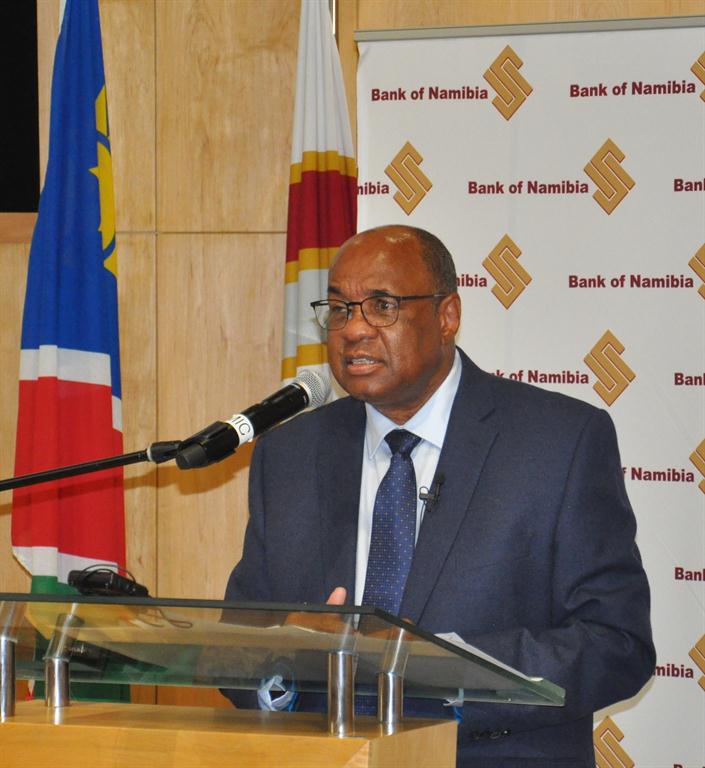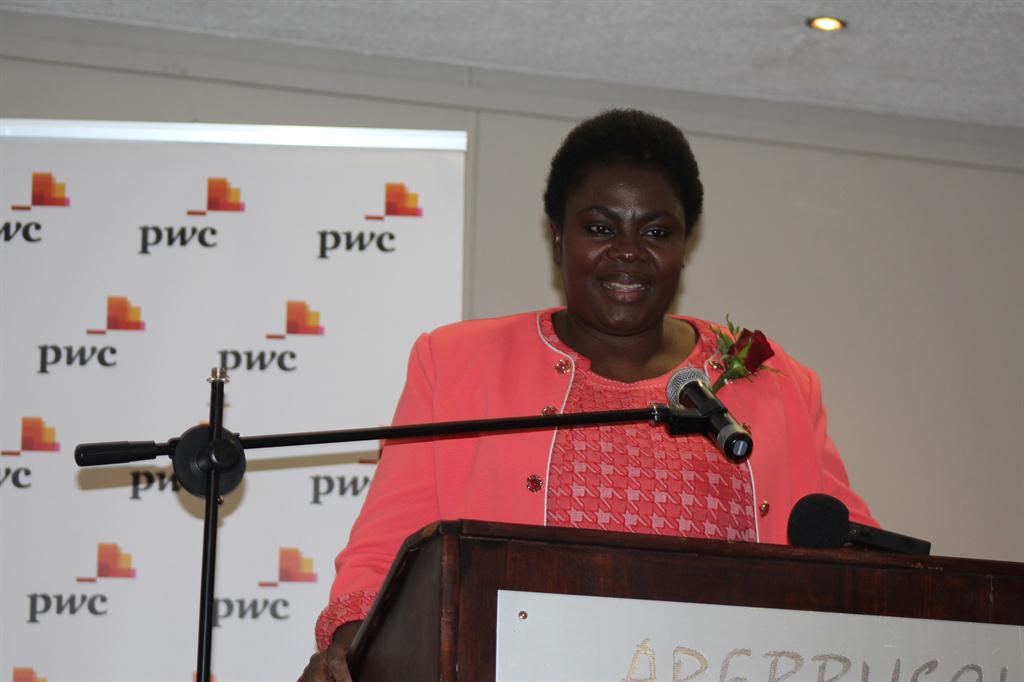Economic development should be prioritised
Procure, produce and buy locally to save jobs, increase exports, reduce imports and eventually boost economic growth.
PHILLEPUS UUSIKU - Aggressive government policy interventions are of critical importance to ensure that the domestic economy grows and remain relevant regionally and globally in order to boost investor’s business confidence.
The Namibia Chamber of Commerce and Industry (NCCI) held its annual general meeting (AGM) on Friday under the theme “Rebooting the Namibian economy post Covid-19 towards a sustainable local growth orientated strategy”.
Speaking at the event, Nangula Uaandja, the country senior partner at PwC Namibia, gave a thought provoking presentation on refocusing impactful drivers to enhance sustainable economic growth.
She noted that Namibia is second of countries that have the highest inequality behind the most industrialised African country, South Africa.
“Apartheid can be blamed for the inequality that exists in Namibia, but the nation must take responsibility for its failures and shortcomings,” she said.
Uaandja further pointed out that on average, only 70% to 80% of Namibians have grade 12, hence influencing their earnings as they don’t have qualifications to enable them to earn a decent income.
There is an urgent need to invest in revenue generating activities. Human capacity development is very crucial in boosting manufacturing output that Namibia has so much potential in. Hence, specialisation and diversification of skills is very crucial to boost growth, she said.
Spending on education is crucial, but spending on the right education is more crucial to ensure that the workforce has the necessary skills and knowledge to boost output and respond to the industry needs, she added.
REFORMS
Also speaking at the annual general meeting was the central bank governor, Johannes !Gawaxab, who gave a promising presentation titled “Namibia’s economic prospects, responsive investment, sustainable and inclusive post Covid-19 recovery reforms”.
!Gawaxab notes that the global crisis has spared no continent, country or nation. Trade, tourism and travel sectors have collapsed causing demand, supply and financial shocks.
“We now are faced with twin challenges, containing the pandemic including a possible second wave and coping with adverse spillovers”, he said.
!Gawaxab however, pointed out that the Namibia economy is expected to return to positive growth next year by 2.1% on the grounds that the economy is expected to fully open up and with the mining and agricultural sectoral activities picking up.
The Bank of Namibia (BoN) governor said public policy support continues to be critical particularly to vulnerable households and viable businesses, and reorientation of spending are essential.
There is also a need to exploit opportunities presented by the African Continental Free Trade Agreement (AfCFTA), deepen financial markets to ensure greater credit availability and most importantly ensure preferential treatment of Namibian entities in local procurement to save jobs and boost economic growth, he added.
OPPORTUNITIES
The Covid-19 pandemic did not only present disruptions to economic activities, but also created opportunities to do things better in IT Infrastructure, domestic tourism, clean energy and agro-processing, he said.
“Namibia experienced a surge in the use of IT services following the outbreak, we can invest more in IT infrastructure and increase efficiency. We must add value to what we have, by investing more in agro-processing”, !Gawaxab pointed out.
Once investments in utilities are sought, agricultural production can be increased and so is the processing of agricultural products.
With inflation and interest rates at their lowest levels in more than 40 years, now is a good time to invest in infrastructure, so as to drive recovery from the coronavirus pandemic, he added.
The BoN will continue to play its part by providing an environment of financial stability, moderate inflation and interest rates, he concluded. –[email protected]
The Namibia Chamber of Commerce and Industry (NCCI) held its annual general meeting (AGM) on Friday under the theme “Rebooting the Namibian economy post Covid-19 towards a sustainable local growth orientated strategy”.
Speaking at the event, Nangula Uaandja, the country senior partner at PwC Namibia, gave a thought provoking presentation on refocusing impactful drivers to enhance sustainable economic growth.
She noted that Namibia is second of countries that have the highest inequality behind the most industrialised African country, South Africa.
“Apartheid can be blamed for the inequality that exists in Namibia, but the nation must take responsibility for its failures and shortcomings,” she said.
Uaandja further pointed out that on average, only 70% to 80% of Namibians have grade 12, hence influencing their earnings as they don’t have qualifications to enable them to earn a decent income.
There is an urgent need to invest in revenue generating activities. Human capacity development is very crucial in boosting manufacturing output that Namibia has so much potential in. Hence, specialisation and diversification of skills is very crucial to boost growth, she said.
Spending on education is crucial, but spending on the right education is more crucial to ensure that the workforce has the necessary skills and knowledge to boost output and respond to the industry needs, she added.
REFORMS
Also speaking at the annual general meeting was the central bank governor, Johannes !Gawaxab, who gave a promising presentation titled “Namibia’s economic prospects, responsive investment, sustainable and inclusive post Covid-19 recovery reforms”.
!Gawaxab notes that the global crisis has spared no continent, country or nation. Trade, tourism and travel sectors have collapsed causing demand, supply and financial shocks.
“We now are faced with twin challenges, containing the pandemic including a possible second wave and coping with adverse spillovers”, he said.
!Gawaxab however, pointed out that the Namibia economy is expected to return to positive growth next year by 2.1% on the grounds that the economy is expected to fully open up and with the mining and agricultural sectoral activities picking up.
The Bank of Namibia (BoN) governor said public policy support continues to be critical particularly to vulnerable households and viable businesses, and reorientation of spending are essential.
There is also a need to exploit opportunities presented by the African Continental Free Trade Agreement (AfCFTA), deepen financial markets to ensure greater credit availability and most importantly ensure preferential treatment of Namibian entities in local procurement to save jobs and boost economic growth, he added.
OPPORTUNITIES
The Covid-19 pandemic did not only present disruptions to economic activities, but also created opportunities to do things better in IT Infrastructure, domestic tourism, clean energy and agro-processing, he said.
“Namibia experienced a surge in the use of IT services following the outbreak, we can invest more in IT infrastructure and increase efficiency. We must add value to what we have, by investing more in agro-processing”, !Gawaxab pointed out.
Once investments in utilities are sought, agricultural production can be increased and so is the processing of agricultural products.
With inflation and interest rates at their lowest levels in more than 40 years, now is a good time to invest in infrastructure, so as to drive recovery from the coronavirus pandemic, he added.
The BoN will continue to play its part by providing an environment of financial stability, moderate inflation and interest rates, he concluded. –[email protected]





Kommentaar
Republikein
Geen kommentaar is op hierdie artikel gelaat nie